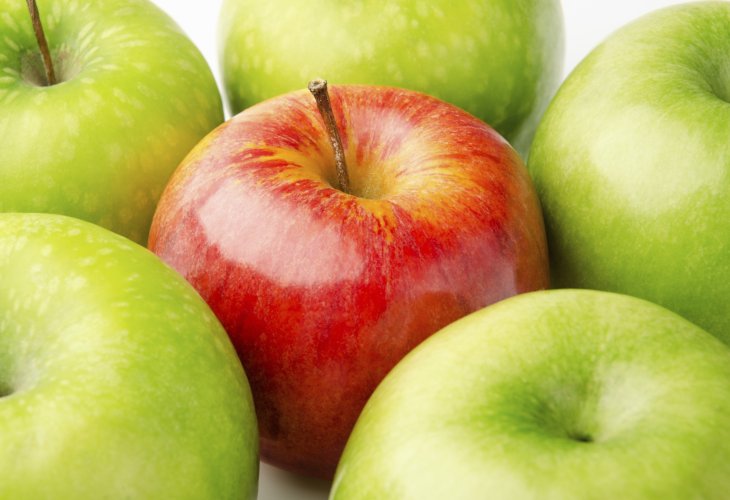Jewish Law
Why Not Every Shiny Apple Is Kosher: The Hidden Truth About Fruit Wax and Halacha
From beeswax to shellac — the halachic science behind glossy fruit, what’s permitted, and why it’s sometimes better to peel that perfect apple
- Rabbi Yishai Malka / Yom LaYom
- |Updated

We’ve become so accustomed to seeing bright, glossy fruit that a naturally dull apple immediately seems like “second class.” In fact, the matte appearance is the apple’s natural state, as it’s sold in much of the world, but because consumers expect perfect shine, fruit distributors often coat apples with wax to make them more appealing. However, not everything that glitters is gold — and not every gleaming apple is kosher.
The Halachic Question: Wax from Bees
One of the most common substances used for polishing fruit is beeswax. This raises an important question: can food be coated with beeswax for appearance, and is it permissible to eat?
We know that bee honey is permitted, even though bees are non-kosher insects and, in general, anything produced by a non-kosher creature is also non-kosher. Why is honey different?
The Talmud and later halachic authorities explain: A bee has two stomachs — one for digestion and one that serves merely as a storage pouch for nectar collected from flowers. In that second pouch, the nectar remains chemically unchanged. When the bee stores the nectar in the hive and it dehydrates into honey, its essence remains the same; no biological transformation occurs.
Therefore, the Torah permits bee honey.
However, beeswax is entirely different. Wax is a fatty compound produced from the bee’s own body, secreted by glands under its abdomen through a biochemical process that breaks down sugars in the bee’s blood. Because the wax is generated from the bee’s own tissue, not merely stored like honey, it is considered a byproduct of a non-kosher creature and would seemingly be forbidden.
Divergent Halachic Opinions
Because of this distinction, some kashrut authorities prohibit polishing fruit with beeswax altogether. Yet, most halachic authorities permit it, for several reasons:
Beeswax is inedible on its own — it has a bitter, unpleasant taste and is classified as non-food material.
The wax is treated as dry and tasteless, similar to substances used industrially, not as an edible ingredient.
Even to the bee itself, wax is waste material, not something consumed.
Some authorities hold that since Scripture explicitly permits honey, this includes all natural bee products, such as wax.
Therefore, many reliable kosher agencies allow beeswax coatings, though others prefer to avoid it for reasons of extra stringency.
The Case of Shellac — A Bigger Concern
A greater issue is shellac, a sticky resinous substance widely used to coat candies, chewing gum, and even apples. Shellac is secreted by tiny insects (Kerria lacca) that live on trees in India and Thailand.
These insects extract tree sap and then secrete a plastic-like resin (called sticklac) that serves as a protective coating and egg-laying surface.
From both a scientific and halachic standpoint, this secretion is a new material produced by non-kosher insects, not plant sap. After collection, it is heated to about 180°C (356°F) — which means the insect fats and larvae are cooked together with the resin. Then, it’s purified and dissolved in alcohol (which may not be kosher), and finally processed into a fine powder — shellac, used for food glazing.
Thus, foods polished with shellac, such as candies, gums, or shiny apples, require special kosher supervision to ensure the coating is free from insect-derived material.
Modern Practice
In Israel, most fruit distributors today use plant-based wax, made primarily from legume oils, due to the growing demand for stricter kosher standards. However, in many other countries, there is no oversight at all on fruit waxing.
Therefore, when buying imported fruit, if the apple does not have a kosher certification, or if you don’t know the source of the wax coating, it’s best to peel the fruit before eating.

